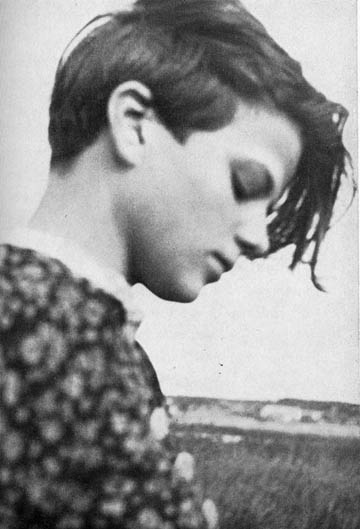
“Sophie Scholl” by jimforest is licensed under CC BY-NC-ND 2.0.
Full Name: Sophie Magdalena Scholl
Birth Date: 9 May 1921
Death Date : 22 February 1943
Location: The Walhalla Temple, Walhalla Strasse 48, Germany
Monument Type: Monument/Memorial
“How can we expect righteousness to prevail when there is hardly anyone willing to give himself up individually to a righteous cause? Such a fine, sunny day, and I have to go, but what does my death matter, if through us, thousands of people are awakened and stirred to action?”
These are the final known words of 21-year-old Sophie Scholl before her execution in 1943. Despite her tragic end, Sophie’s brief life had a lasting impact on those fighting the evils of World War Two.
Sophie was born on May 9, 1921 into a large German family. Her father worked in local government and economic positions. In early 1933, when Sophie was eleven, Adolf Hitler became the German chancellor. Soon after his election, Hitler and his Nazis began to take complete control of Germany. They banned political parties other than their own; formed the violent Gestapo secret police; banned anti-Nazi media; and eliminated the Reichstag, which was “the democratic German governing institution” (Atwood 11). Despite their parents’ hatred of the regime, many of the Scholl siblings supported it at first. Many of them joined Hitler Youth, which brainwashed children with Nazi beliefs. Sophie even became a leader in the League of German Girls, a section of Hitler Youth.
Despite the Party’s attempts at making children followers of their rule, some began to doubt the regime. This included Sophie and her siblings. Some of her siblings participated in circles of young people who liked the German Romantic cultural movement. Yet, the Nazis outlawed these groups in 1936. They arrested some of Sophie’s siblings in 1937 for still attending such groups. This firsthand experience of the Nazi’s violence led the siblings to see how terrible the party was. The older Scholl boys experienced more violence in the military after the start of World War Two in 1939. Back in Germany in 1941, Sophie was forced to work for the National Labor Service before attending college. This experience of strict routine and rules made Sophie dislike the Nazis more.
The spring of 1942 saw Sophie’s entrance into both the University of Munich and the Resistance. Sophie learned her brother Hans and a group of his friends created an anti-Nazi pamphlet she read. They called themselves the Weiße Rose, or the White Rose. Sophie was able to talk her way into joining the White Rose, proving herself to be vital to the group in time. Of the six main members in the organization, Sophie was the only female. She was an important member who managed their budget and helped copy and hand out the pamphlets.
The White Rose and their allies circulated the six editions of the paper all across Germany. The members even graffitied phrases such as “‘Down with Hitler’ and ‘Freedom’” (WWII Museum). During a distribution of the leaflets at the University of Munich, Sophie dropped hundreds of pamphlets off of a landing onto the people below. Unfortunately, a Nazi janitor saw this occur, leading to the arrest of the two Scholl siblings. That day was February 18, 1943, and the two siblings and another member faced trial four days later. As the judge was yelling about the trio’s traitorous actions, Sophie cried out, “‘Somebody had to make a start! What we said and wrote are what many people are thinking. They just don’t dare say it out loud!’” (Atwell 15). That same day, the Nazis executed the three, with other members of the White Rose to follow.
Even though the White Rose’s members died during the war, their words continued to inspire those they left behind. The New York Times and the BBC both reported on their actions. In a scene mirroring Sophie’s final act of resistance, the final pamphlet was brought into Great Britain, where they copied it and dropped them from planes over Germany that summer. Even though she never got to see the victory of the Allied forces over Nazi Germany, others who were inspired by the words of Sophie and other White Rose members saw that day in 1945.
Sources
Atwood, Kathryn J.. Women Heroes of World War II: 26 Stories of Espionage, Sabotage, Resistance, and Rescue. Chicago: Chicago Review Press, 2011.
https://www.britannica.com/topic/White-Rose
https://www.nationalww2museum.org/war/articles/sophie-scholl-and-white-rose
